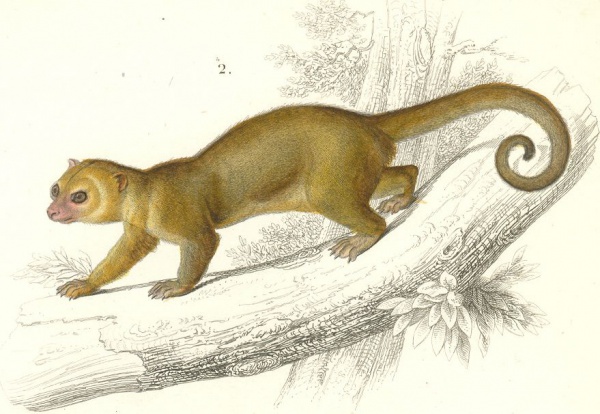Facts About Kinkajou
The kinkajou, often referred to as the "honey bear" is a captivating mammal native to the tropical rainforests of Central and South America. Belonging to the Procyonidae family, it is the sole species in the genus Potos. These arboreal creatures primarily consume fruit, but they also enjoy insects, leaves, and flowers. Kinkajous play a crucial role in their ecosystem by aiding in seed dispersal and even pollination.
Although they are not classified as endangered, kinkajous face threats from hunting for the pet trade as well as for their fur and meat. These animals possess several distinctive physical traits, such as a prehensile tail, an extensible tongue, and unique coat markings.
There are eight proposed subspecies of kinkajous, each exhibiting specific traits and occupying different habitats. Research suggests that kinkajous represent an early branch of the Procyonidae family tree and have evolved specialized adaptations for an arboreal lifestyle. They are nocturnal and exceptional climbers. Kinkajous are social animals that breed year-round, typically giving birth to one or two offspring after a gestation period of about four months.
In captivity, kinkajous can live up to 40 years, although their average lifespan is around 23 years. While some people keep them as exotic pets, it is important to note that kinkajous can become aggressive when upset and can carry diseases transmissible to humans.

 Mexico
Mexico